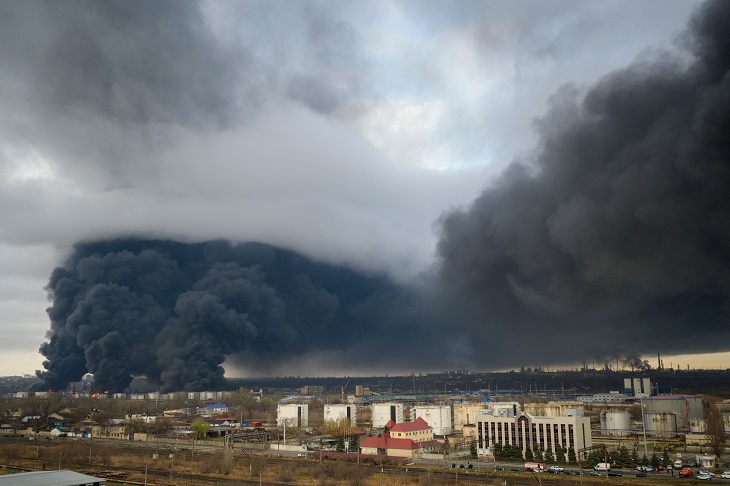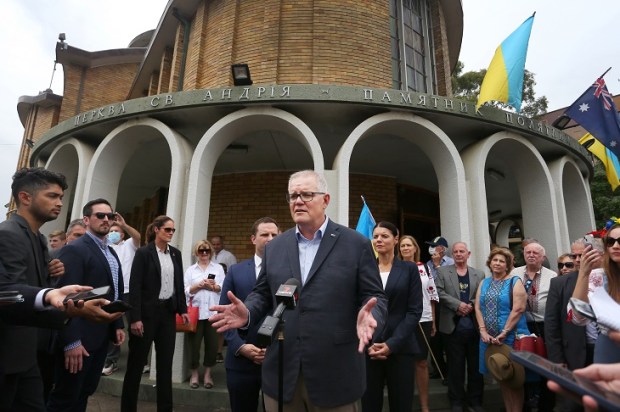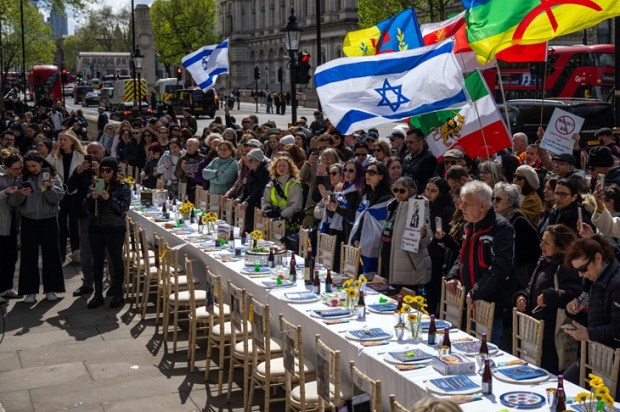It is a strange thing to travel toward a war zone. As one drives in the direction of Ukraine, all is mundane in eastern Poland: tidy farms, prosperous towns, terrific highways, kids walking to school. It’s a reassuringly normal pattern.
Then, a few kilometres from the border in a small city called Přemysl which has become one of the main humanitarian centres for those fleeing Putin’s war on Ukraine, I started to spot changes in the pattern. Police, military vehicles, the blue lights of ambulances, buses, random bags of clothing, piles of refuse. The detritus of conflict and its consequences.
War is perhaps the ultimate change in our pattern of normality. It’s when we see innocents subjected to violence that is unbelievable and offensive to us. But what’s perhaps even more unbelievable is that some young guy and some commanding officer made a decision to apply that violence. Or, that they felt that their chain of command was okay with that.
The impact of Putin’s violence against Ukrainians was apparent yesterday when I visited the border crossing from Ukraine to Poland at Medyka, just beyond Přemysl, as part of my volunteering with an aid organisation.
Young mums with their kids; everybody in puffy jackets for winter weather; towing small suitcases on wonky wheels; sometimes, pulling their pet dog along. They’d arrived near the border on packed trains from places that the world knew nothing of a month ago: Sumy, Kharkiv, Dnipro…
At Medyka, the refugee families walk down a chaotic corridor of care. Aid organisations from France, Taiwan, Germany, Israel, and elsewhere welcome them with French Fries, Sikh curries, pet food, toys, phone charging, and information on further passage. Later, similar organisations will take these refugees to safe haven across Europe. I saw bus schedules with departures for Ireland, Finland, Sweden, Portugal, Estonia, and others. The Ukrainians wander the world after theirs has been wounded.
I spoke with numerous women yesterday. I asked them many questions about what, why, and where. Perhaps, it seems intrusive, but each woman was happy to share her family’s story. Each woman – each and every one – was positive and pragmatic. It is amazing that while they carry few possessions, they still carry great hope.
After their 36-hour journey from home, three miners’ wives and their combined seven kids from Donetsk province were among those I met. They left when the shelling got too intense in their town, but were looking forward to going home as soon as possible. Their addresses now are their mobile phones with which they ‘Viber’ their husbands.
These ladies were tough as rocks and tender as roses at the same time. They organised their hair and their kids into order for a happy snap. I wished them well on their journey.
There are fewer people crossing now than last week, I was told. Indeed, the war seems to be changing. Ukrainians are not only defying expectations in defence, but now taking back territory; cafes and schooling are re-opening in Kyiv; the pummelled Russians are perhaps buying time to re-group and re-focus toward Donbas and more limited objectives.
I’m helping out with HelpUkraine22, a start-up NGO based on both American can-do and Ukrainian know-how. It and others are quickly pivoting to meet needs beyond those of some 3 million refugees who have now left Ukraine. While major organisations, like the Red Cross and UN, cannot as yet operate in a ‘war zone’, others are filling the gap and pumping food, medical supplies, other material, and funding support into communities and NGOs on the ground in Ukrainian cities.
Clever micro-projects like converting what would have been wasted consumer milk into cheese that is distributed to isolated people in a besieged area. Building capability and saving lives in practical ways.
Even here, Russian interference is present and aimed at hurting people. For example, there are reports of third parties acting for the Russian FSB who are jamming up supply chains by booking dummy orders with freighting and trucking firms.
The only option is to get smarter and to get faster about how humanitarian aid can be deployed in Ukraine. Bright young volunteers develop online solutions to coordinate and distribute assistance where it is needed most.
The former reformist President of Ukraine, Victor Yushchenko, a former target of Putin’s assassins, keeps bees. It is apt for this situation where, all over Ukraine and here in Poland in supportive NGOs, there’s hive-like activity to not only rescue the vulnerable, but resist force and restore the pattern.
The pattern that, just like ourselves, the Ukrainians want in their lives and, especially, their kids’ lives. Of peace, prosperity, and possibility.
Got something to add? Join the discussion and comment below.
Get 10 issues for just $10
Subscribe to The Spectator Australia today for the next 10 magazine issues, plus full online access, for just $10.

























Comments
Don't miss out
Join the conversation with other Spectator Australia readers. Subscribe to leave a comment.
SUBSCRIBEAlready a subscriber? Log in